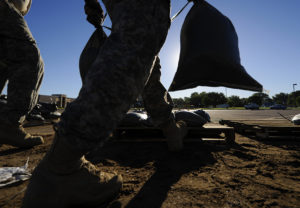Anonymous, the notorious Robin Hood-esque band of online “hacktivists”, are accusing a computer firm based in the Silicon Valley region of California of playing a major role in ensuring the online security of ISIS (Islamic State).
After the horrific terrorist attacks on Paris last month, the hacker group declared online war on the terror organization, and their recent bombshell claims that the tech startup CloudFlare protects ISIS and their pro-militant websites.
According to their own website, the company has four million customers and sells tech that protects against cyber-attacks and quickens any lagging browser loading.
The United Kingdom-based news site Metro cites a report that the company is protecting up to 40 websites linked to terrorism.
A bunch of tweets went out from Anonymous-linked accounts over the weekend calling out their culprit, but appear to have since been deleted.
Matthew Prince, the founder of CloudFlare, dismisses the claims.
“I’d suggest this was armchair analysis by kids — it’s hard to take seriously,” he told The Register, a British tech news site.
“Anonymous uses us for some of its sites, despite pressure from some quarters for us to take Anonymous sites offline.”
More from Metro:
Prince added that he would fully co-operate with any federal authorities who may wish to pursue the claims made by Anonymous.
“Even if we were hosting sites for ISIS, it wouldn’t be of any use to us,” Prince said.
“I should imagine those kinds of people pay with stolen credit cards and so that’s a negative for us.”
In 2013, the site faced similar accusations when they were accused of protecting a website linked to Al-Qaeda.
In a blog post, Prince said they were “protecting free speech.”
“A website is speech. It is not a bomb. There is no imminent danger it creates and no provider has an affirmative obligation to monitor and make determinations about the theoretically harmful nature of speech a site may contain”, he said.
“If we were to receive a valid court order that compelled us to not provide service to a customer then we would comply with that court order.”




































